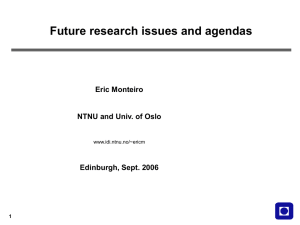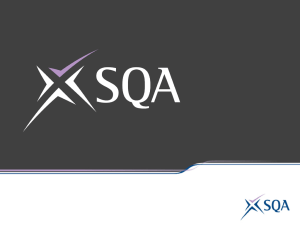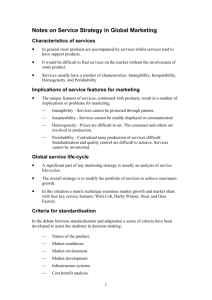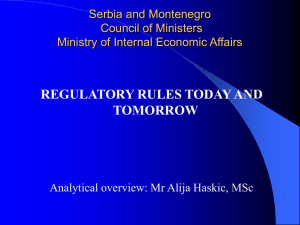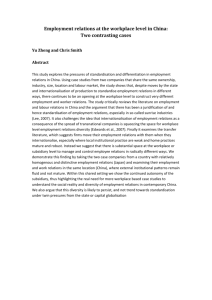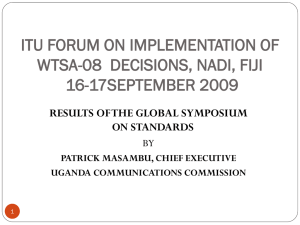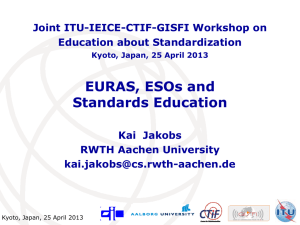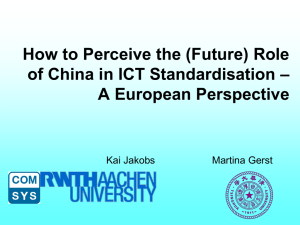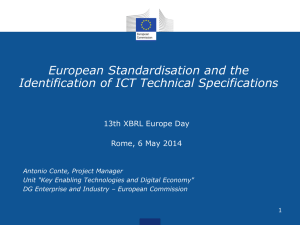DOC - Europa
advertisement
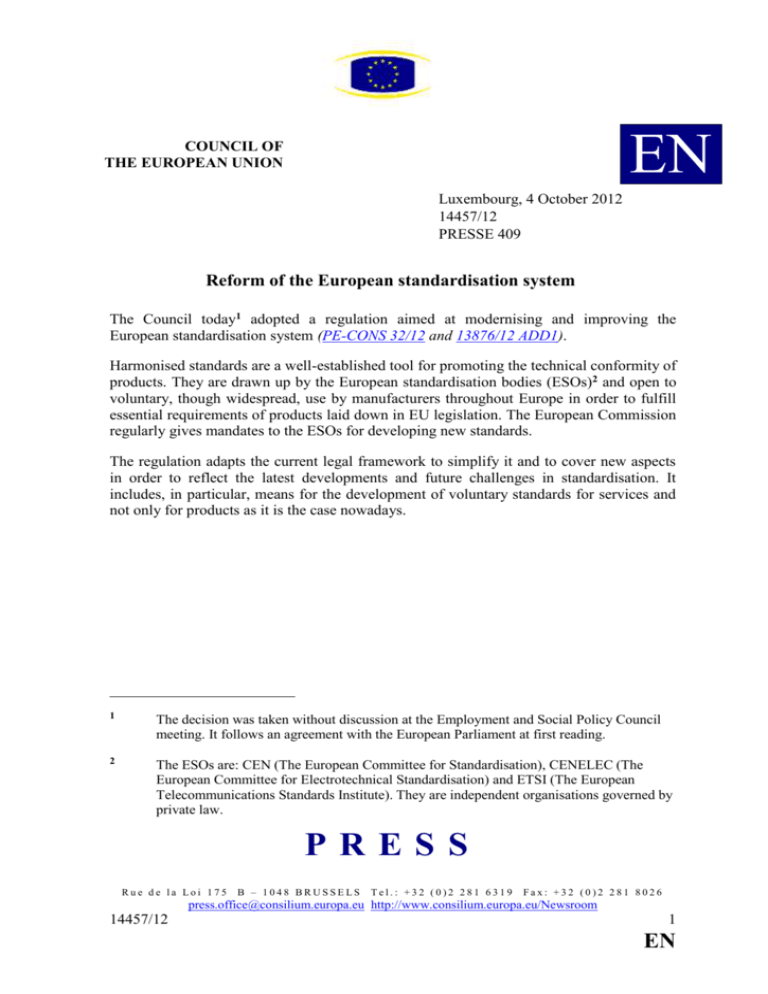
EN COUNCIL OF THE EUROPEAN UNION Luxembourg, 4 October 2012 14457/12 PRESSE 409 Reform of the European standardisation system The Council today1 adopted a regulation aimed at modernising and improving the European standardisation system (PE-CONS 32/12 and 13876/12 ADD1). Harmonised standards are a well-established tool for promoting the technical conformity of products. They are drawn up by the European standardisation bodies (ESOs)2 and open to voluntary, though widespread, use by manufacturers throughout Europe in order to fulfill essential requirements of products laid down in EU legislation. The European Commission regularly gives mandates to the ESOs for developing new standards. The regulation adapts the current legal framework to simplify it and to cover new aspects in order to reflect the latest developments and future challenges in standardisation. It includes, in particular, means for the development of voluntary standards for services and not only for products as it is the case nowadays. 1 The decision was taken without discussion at the Employment and Social Policy Council meeting. It follows an agreement with the European Parliament at first reading. 2 The ESOs are: CEN (The European Committee for Standardisation), CENELEC (The European Committee for Electrotechnical Standardisation) and ETSI (The European Telecommunications Standards Institute). They are independent organisations governed by private law. PRESS Rue de la Loi 175 B – 1048 BRUSSELS Tel.: +32 (0)2 281 6319 Fax: +32 (0)2 281 8026 press.office@consilium.europa.eu http://www.consilium.europa.eu/Newsroom 14457/12 1 EN Faster standards and wider participation The new framework, which will contribute to shorten the average time of the standardsetting process, will facilitate representation and participation of small and medium-sized enterprises (SMEs) in the standardisation process, thus redressing the current situation where, in general, SMEs are under-represented in European standardisation activities. There will be a greater involvement of consumer and social organisations in standardisation activities so as to introduce improvements in products and services for certain groups of population such as disabled and elderly people. Standards will also require to take account of environmental impacts throughout the life cycle of products and services, as well as resource-efficiency objectives. Information and communication technologies Another novelty concerns the possibility of a better use by public authorities of relevant technical specifications when procuring hardware, software and information technology services. In particular, contracting authorities will be able to reference common technical specifications that can respond to the fast evolution in the field of information and communication technologies. The technical specifications will have to have market acceptance and do not hamper interoperability with existing European or international standards. A tool for innovation and competition The primary objective of standardisation is the definition of voluntary technical or quality criteria with which manufacturers, production processes or services may comply. Standardisation can provide an essential contribution towards developing innovation and competitiveness by facilitating access to markets and by enabling interoperability between new and existing products and services. It brings significant positive economic effects by stimulating the development of new and improved products or markets and better supply conditions. Standards usually increase competition and lower output and sales costs, benefiting economies as a whole and consumers in particular. Moreover, they enhance quality and ensure compatibility, thereby increasing safety and well-being for the citizens. The basis for the standardisation reform was put forward in the Commission communication "A strategic vision for European standards" (11471/11) and the draft regulation adopted today, which will apply from January 2013. 14457/12 2 EN
